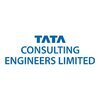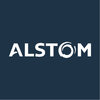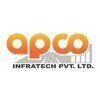Filter interviews by
Tecton Engineering and Construction Billing Engineer Interview Questions and Answers
Tecton Engineering and Construction Billing Engineer Interview Experiences
1 interview found

(1 Question)
- Q1. Why do u need job change,
(2 Questions)
- Q1. Code of measurement to be used
- Ans.
The code of measurement to be used depends on the project specifications and standards.
The code of measurement should be agreed upon by all parties involved in the project.
It should be based on the project specifications and standards.
Common codes of measurement include SMM7, CESMM3, and NRM2.
The code of measurement should be used consistently throughout the project.
Any changes to the code of measurement should be docu
- Q2. Is 1200 , 1is 808
Interview Preparation Tips
Top trending discussions






Interview questions from similar companies

Interview Questionnaire
1 Question
- Q1. Hard core techanical

I applied via Referral and was interviewed before Jan 2021. There were 5 interview rounds.
Interview Questionnaire
4 Questions
- Q1. What do you want to do in 5 years
- Q2. What is glass
- Ans.
Glass is a solid, transparent material made by heating a mixture of silica and other materials.
Glass is a non-crystalline, amorphous solid
It is made by heating a mixture of silica, soda ash, and lime
It can be molded into various shapes and sizes
It is used in windows, mirrors, lenses, and containers
Different types of glass include tempered, laminated, and stained glass
- Q3. What is graphene
- Ans.
Graphene is a thin layer of pure carbon arranged in a hexagonal lattice.
It is the thinnest material known to man
It is a good conductor of electricity and heat
It is incredibly strong and flexible
It has potential applications in electronics, energy, and medicine
- Q4. What is your expectations
Interview Preparation Tips

Senior Engineer Interview Questions & Answers
Megha Engineering & Infrastructuresposted on 20 Dec 2020
I applied via Naukri.com and was interviewed in Nov 2020. There was 1 interview round.
Interview Questionnaire
4 Questions
- Q1. What is the previous job role ?
- Q2. What is the percentage of bitumen in DBM ?
- Ans.
The percentage of bitumen in DBM varies depending on the specific mix design and project requirements.
DBM stands for Dense Bituminous Macadam, which is a type of road construction material.
The percentage of bitumen in DBM typically ranges from 4% to 6% by weight.
The exact percentage of bitumen is determined based on factors such as traffic load, climate conditions, and desired durability.
Higher percentages of bitumen a...
- Q3. Why you want change your company ?
- Q4. What is your salary expectation ?
Interview Preparation Tips

Senior Engineer Interview Questions & Answers
Megha Engineering & Infrastructuresposted on 17 Feb 2021
I applied via Walk-in and was interviewed in Aug 2020. There was 1 interview round.
Interview Questionnaire
1 Question
- Q1. ELSR MEANS
Interview Preparation Tips

Senior Engineer Interview Questions & Answers
Megha Engineering & Infrastructuresposted on 14 Jul 2017
I appeared for an interview before Jul 2016.
Interview Preparation Tips
Duration: 4 hours 5 minutes
Round: Test
Duration: 2 hours 5 minutes

Senior Engineer Interview Questions & Answers
Megha Engineering & Infrastructuresposted on 23 Oct 2020
I applied via Recruitment Consultant and was interviewed in Apr 2020. There were 3 interview rounds.
Interview Questionnaire
1 Question
- Q1. About HT/LT,Motor/Feeder & Substation Errection & Commission.
Interview Preparation Tips

Senior Engineer Interview Questions & Answers
L&T Energy Hydrocarbonposted on 11 Apr 2021
I applied via Walk-in and was interviewed before Apr 2020. There was 1 interview round.
Interview Questionnaire
6 Questions
- Q1. Can you explain Man day
- Q2. Can you explain manpower mobilization.
- Ans.
Manpower mobilization refers to the process of deploying and managing personnel for a specific project or task.
Identifying the required personnel for a project
Recruiting and hiring personnel
Training and orienting personnel to the project
Assigning roles and responsibilities to personnel
Managing personnel performance and productivity
Ensuring compliance with labor laws and regulations
Examples include mobilizing a construc...
- Q3. How to cost control in project
- Ans.
Cost control in project can be achieved through effective planning, monitoring and controlling of project expenses.
Create a detailed project budget and stick to it
Track expenses regularly and adjust budget as needed
Identify and eliminate unnecessary expenses
Negotiate with vendors for better pricing
Implement cost-saving measures without compromising quality
Use project management tools to monitor expenses and progress
Reg...
- Q4. Can you explain how to handle clinent
- Ans.
Handling clients requires effective communication, understanding their needs, and providing timely solutions.
Listen actively to their concerns and requirements
Communicate clearly and professionally
Provide timely updates and solutions
Build a strong relationship based on trust and respect
Be proactive in identifying and addressing potential issues
Ensure customer satisfaction by going above and beyond expectations
- Q5. Flow chart for manpower mobilization
- Ans.
Manpower mobilization flow chart involves identifying needs, planning, recruitment, training, and deployment.
Identify the need for manpower
Plan the recruitment process
Source and screen candidates
Conduct interviews and assessments
Select and hire candidates
Provide training and orientation
Deploy manpower to required locations
- Q6. Prepared organisation chat for project handling
Interview Preparation Tips

Billing Engineer Interview Questions & Answers
Shapoorji Pallonji Groupposted on 20 Nov 2020
I applied via Campus Placement and was interviewed before Nov 2019. There were 5 interview rounds.
Interview Questionnaire
5 Questions
- Q1. What is Escalation and what is the significance of this? What is the formula to determine Escalation.
- Ans.
Escalation is the increase in cost or price of goods or services over time due to various factors.
Escalation is significant in construction projects where the cost of materials and labor can increase over time.
It is important to factor in escalation when creating project budgets and timelines.
The formula for escalation is: Escalated Cost = Base Cost x (1 + Escalation Rate)^Number of Years
For example, if the base cost o...
- Q2. What is the difference between penality and Liquidity damages?
- Ans.
Penalty is a punishment for breach of contract while liquidity damages compensate for financial loss due to breach.
Penalty is a fixed amount agreed upon in the contract as a punishment for breach of contract.
Liquidity damages compensate for the actual financial loss suffered due to breach of contract.
Penalty is usually higher than the actual loss suffered while liquidity damages are calculated based on the actual loss.
...
- Q3. What do you understand by Term Basic Price variation?
- Ans.
Basic Price variation refers to the change in the cost of materials or labor used in a project.
Basic Price variation is a common clause in construction contracts.
It allows for adjustments to the contract price based on changes in the cost of materials or labor.
The variation can be positive or negative, depending on whether the cost has increased or decreased.
The variation is usually calculated using an agreed-upon form...
- Q4. Is Basic price variation is beneficial for a contract or not? If yes, then explain it how?
- Ans.
Yes, basic price variation is beneficial for a contract.
Basic price variation allows for adjustments to be made to the contract price based on changes in market conditions or material costs.
This helps to ensure that the contractor is not unfairly burdened with unexpected costs and can maintain profitability.
It also provides a level of transparency and accountability in the contract, as both parties are aware of the pot...
- Q5. How many types of contract and their importance? What are the advantages and drawbacks of each.
- Ans.
There are various types of contracts in construction projects. Each has its own advantages and drawbacks.
Types of contracts include lump sum, cost-plus, time and material, and unit price contracts.
Lump sum contracts provide a fixed price for the entire project, but can lead to disputes over changes.
Cost-plus contracts reimburse the contractor for all costs plus a fee, but can lead to inflated costs.
Time and material co...
Interview Preparation Tips
If you don't know the answer, say No, don't trying to confuse.
Always be confident on your each answer.

I applied via Approached by Company and was interviewed before Feb 2021. There were 2 interview rounds.
(2 Questions)
- Q1. What are your salary expectations?
- Q2. What is your family background?
(1 Question)
- Q1. Technical round - depends on your sector and manager . Else no technical questions. Ready to travel . Married or not . Over...
Interview Preparation Tips
- Basic
All the best
Tecton Engineering and Construction Interview FAQs
Tell us how to improve this page.
Tecton Engineering and Construction Interviews By Designations
Interview Questions for Popular Designations
- Senior Billing Engineer Interview Questions
- Planning & Billing Engineer Interview Questions
- Billing Executive Interview Questions
- Site & Billing Engineer Interview Questions
- Estimation & Billing Engineer Interview Questions
- Medical Billing Executive Interview Questions
- Civil Billing Engineer Interview Questions
- Billing Manager Interview Questions
- Show more
Tecton Engineering and Construction Billing Engineer Interview Process
based on 1 interview
Interview experience
Billing Engineer Interview Questions from Similar Companies
|
Assistant Engineer
7
salaries
| ₹0.6 L/yr - ₹4.8 L/yr |
|
Instrument Engineer
7
salaries
| ₹3.4 L/yr - ₹8.4 L/yr |
|
Mechanical Engineer
5
salaries
| ₹4.4 L/yr - ₹14 L/yr |
|
Assistant General Manager HR and Administration
4
salaries
| ₹12 L/yr - ₹14.2 L/yr |
|
Electrical Site Engineer
4
salaries
| ₹3.6 L/yr - ₹7 L/yr |

Megha Engineering & Infrastructures

Shapoorji Pallonji Group

Alstom Transportation

Tata Technologies
- Home >
- Interviews >
- Tecton Engineering and Construction Interview Questions >
- Tecton Engineering and Construction Billing Engineer Interview Questions









